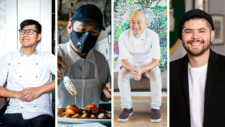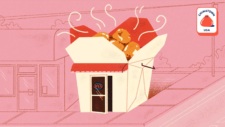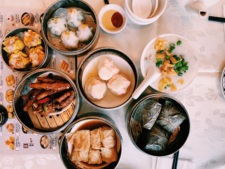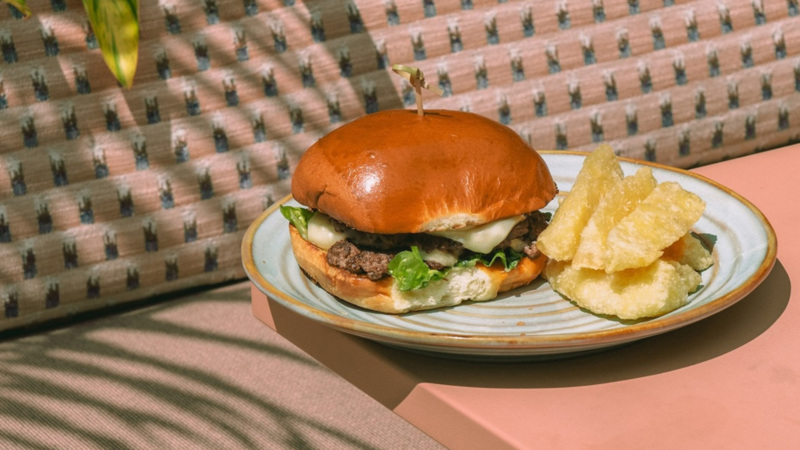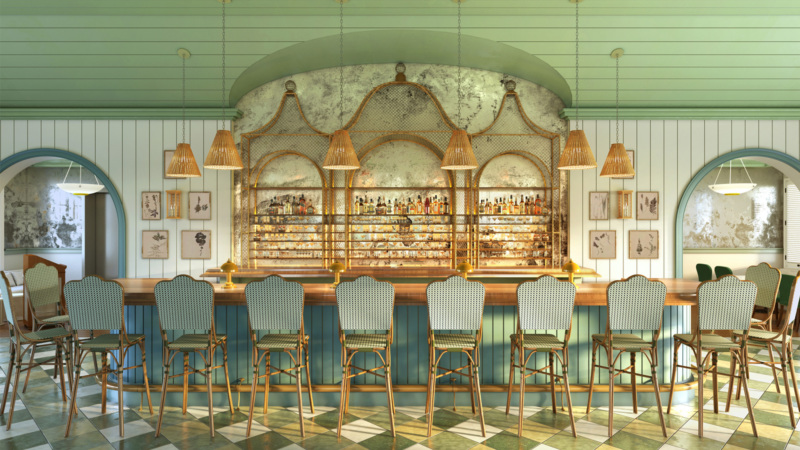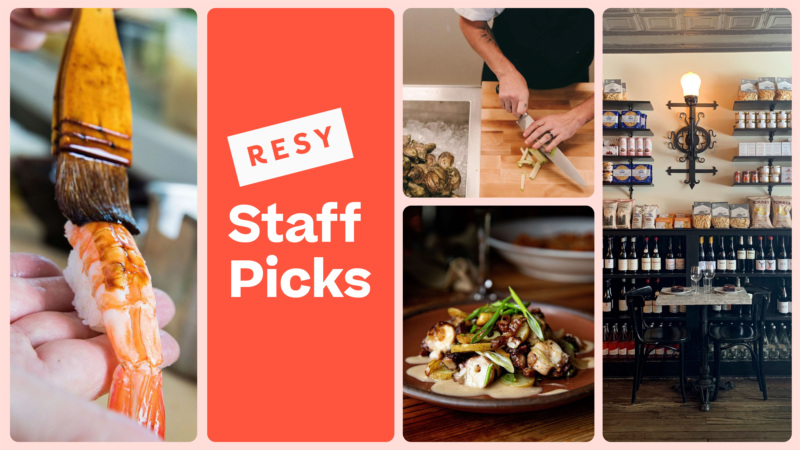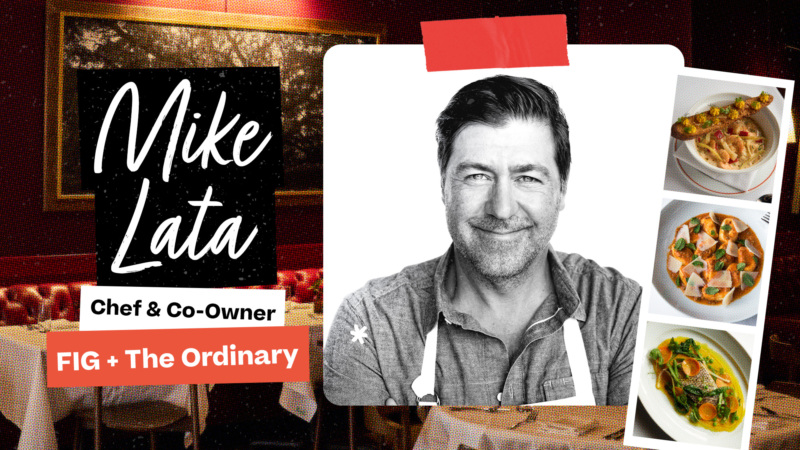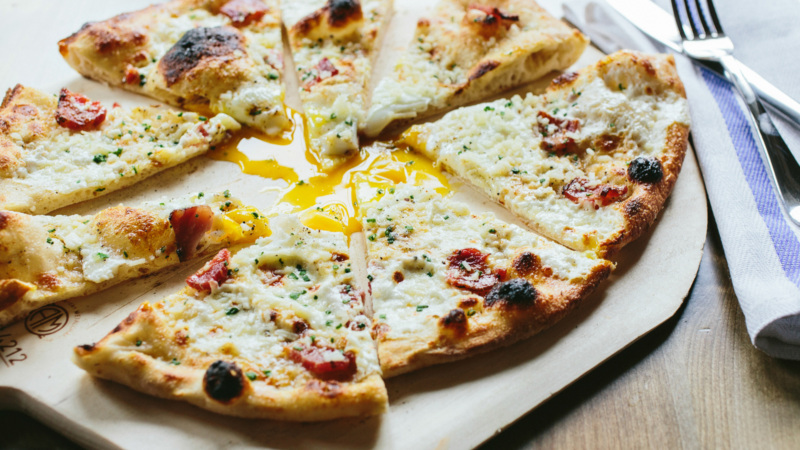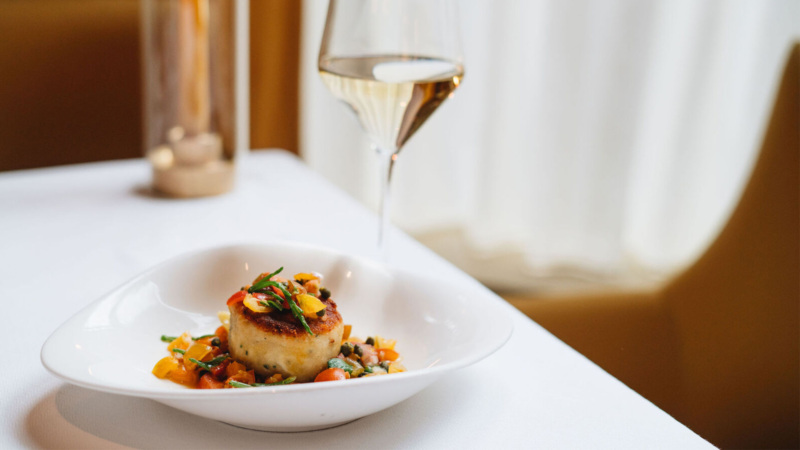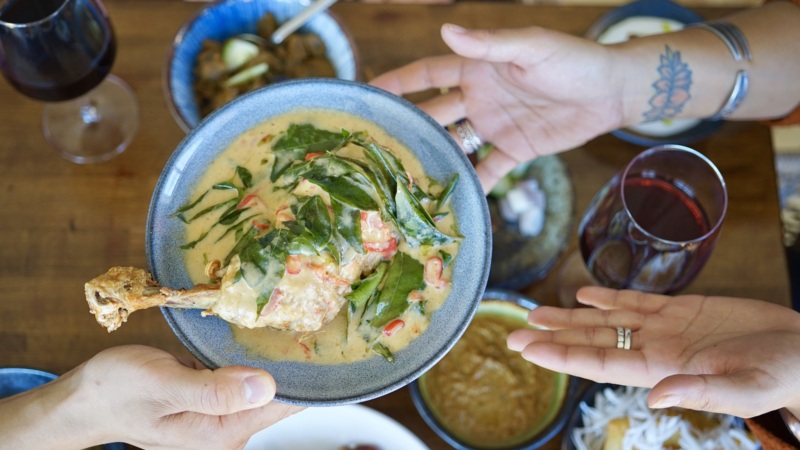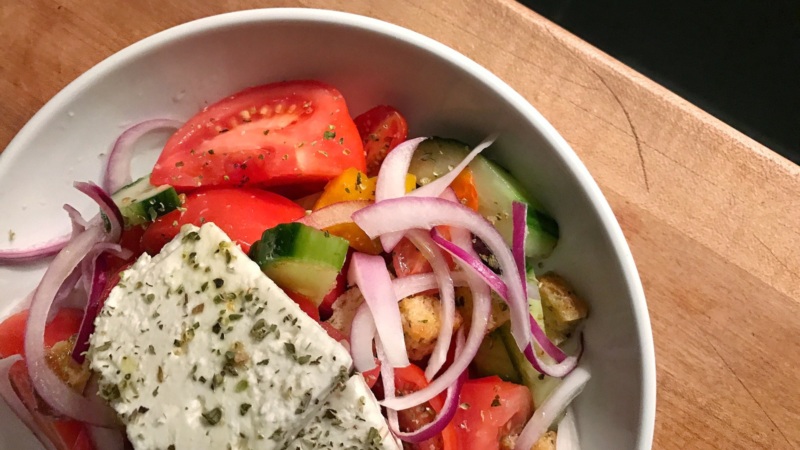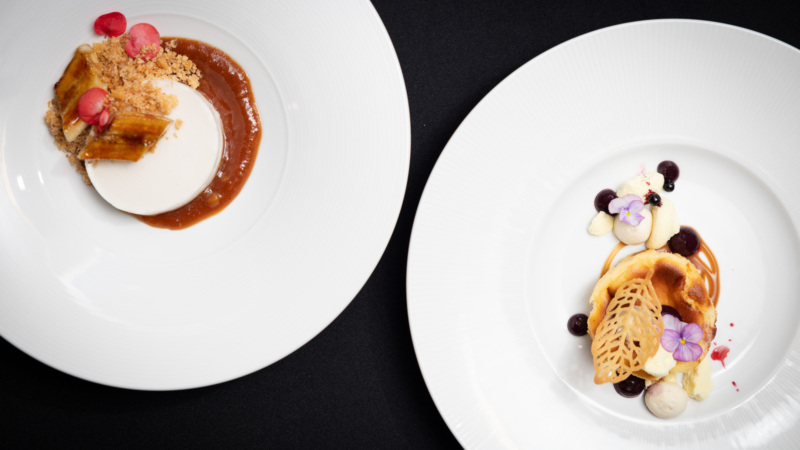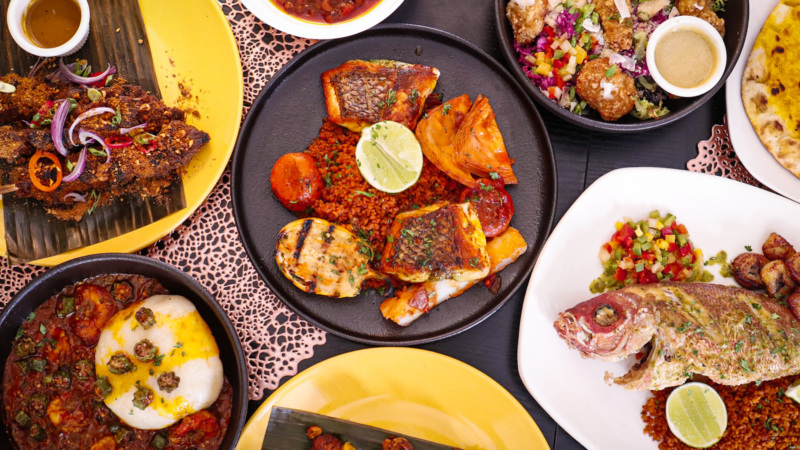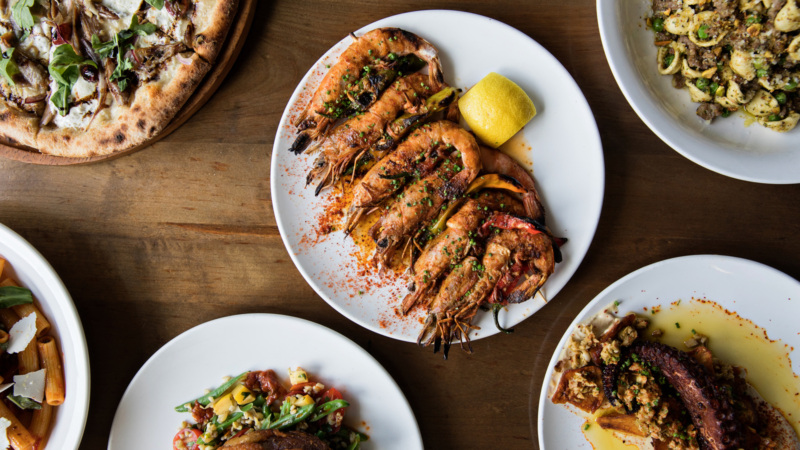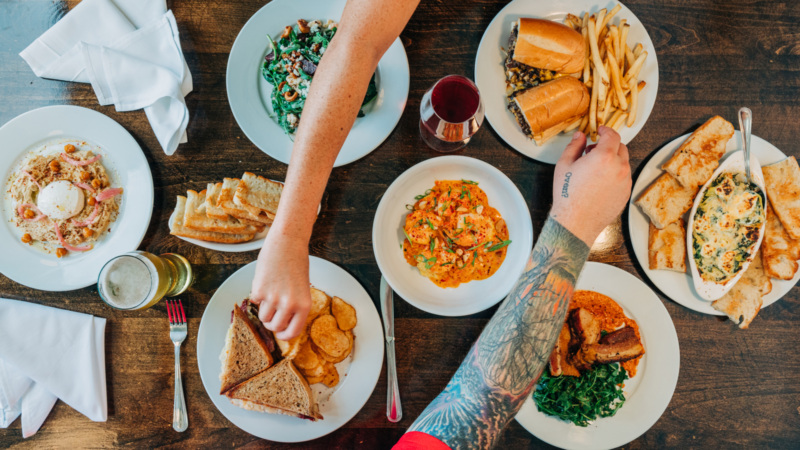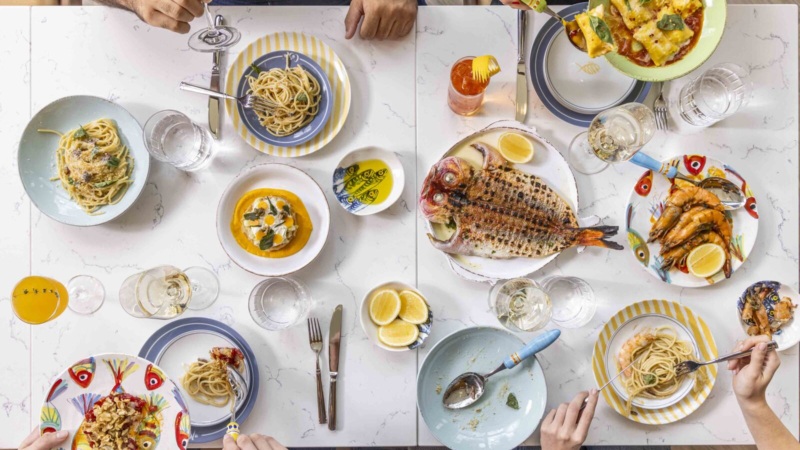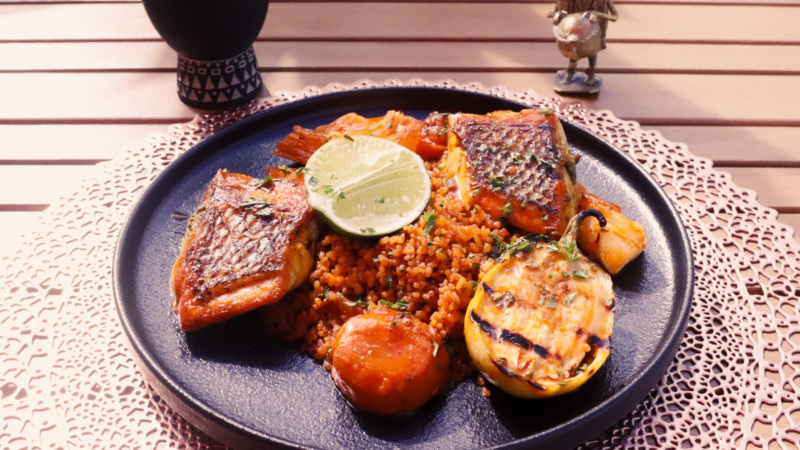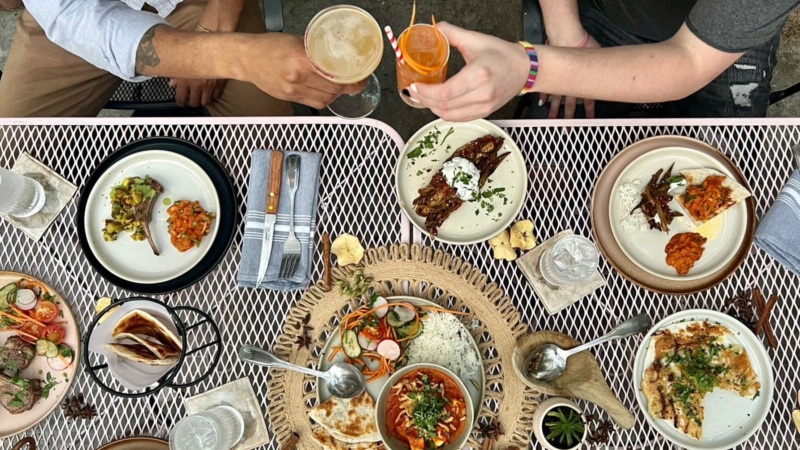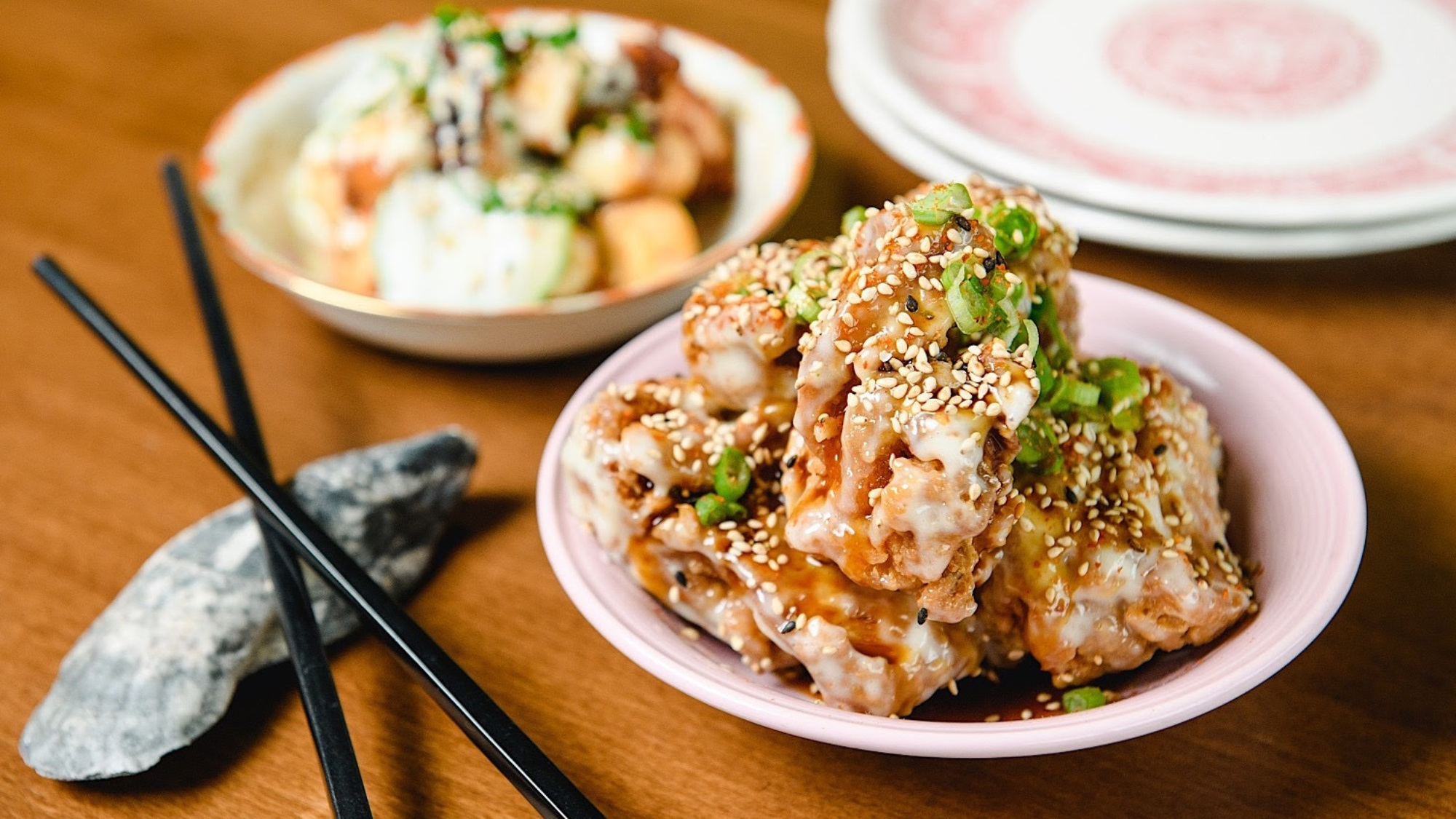
In Charleston, a Chef Embraces His Own Chinese American Story
These days, Shuai Wang, the chef and co-owner of Jackrabbit Filly in Charleston, S.C., feels like he’s finally cooking the food he’s always wanted to cook. That he can finally be who he is, both as a chef and as a Chinese American.
The menu today at Jackrabbit Filly, the restaurant he opened in November 2019 with his wife and co-owner, Corrie Wang, represents his vision of Chinese American food. It’s an adaptation of the taste memories he treasures from his mother and grandmother, and from family dinners he shared in Queens after his family emigrated from Beijing in 1996. It also includes many nods to the Japanese izakaya-style cooking he learned at Chez Sardine in New York City, where he met Corrie years ago.
The result is an exciting mix of dishes like mapo tofu verde, soft shell crab okonomiyaki, Sichuan hot karaage, and Singapore fried rice with canned pineapples. The fried rice, made with local pork, cilantro, scallions, Thai basil, tempura crunch, crispy shallots and garlic, and a curry-dusted buttermilk dressing, is a menu mainstay, inspired by a dish he often shared with his family when they ate out in Flushing, Queens.
“Even though it’s not as fresh as a fresh one, it just brings me back to my childhood, so that’s why I use canned pineapple,” Wang says.
When Jackrabbit Filly first opened, Wang featured a fish-flavored pork spaetzle dish inspired by his grandmother, when she used to mold tiny pieces of dough between her fingers and palms, sautéing them in sesame oil and soy sauce.
Wang admits it took him a long time to gain this sense of confidence — and pride — in his history and his culture. And even as he’s progressed in his career as a chef, he still finds it challenging, at times, to introduce his culture to diners, or share his story.
“When I was younger, in my teens, I was not always proud to be Asian,” he says. “You got picked on, or people would just look at you differently because of the way you look, the way you ate, and the culture that’s behind you, so there was always a little bit of shame being Asian and especially being Chinese, so I wasn’t proud of my identity, and it’s never really shown in my cooking career, until now.”

When he began his culinary career, Wang was focused on learning French cooking, followed by the tenets of New American cuisine, and then, Japanese pub food, or izakaya-style food, which he learned at the now-closed Bar Sardine, then known as Chez Sardine.
When he and Corrie moved to Charleston in 2014, they opened a food truck called Short Grain, specializing in Japanese-influenced rice bowls, mostly because, as Wang says, “There was nothing like that here at the time.”
When it came time to open his first brick-and-mortar spot, Wang says he’d finally gotten to the point where he felt proud to be himself and to cook food that was so personal to him.
“The food my mom and grandma cooked just brought so much happiness and joy to my heart, and I want to celebrate that,” he says. “I wanted to make Chinese food that wasn’t just what people thought it was, like eating beef with broccoli, General Tso’s chicken, and egg rolls. I call that ‘American Chinese food,’ but to me, it’s not Chinese American food. I wanted to showcase this whole different flavor and culture that people didn’t know about.”
Corrie says the evolution of Shuai’s cooking felt natural. “His cooking, by its very nature, just started to move more toward Chinese cuisine after the food truck,” she says. “It was kind of interesting to see that as soon as he had the space and could kind of cook whatever he wanted outside of a rice bowl constraint, it just naturally, became his food, this really wonderful, personal take on Chinese food.”

It’s also not lost on Wang that he’s cooking food that embodies his Chinese American heritage at a time when there has been a steep rise in hate incidents against Asian Americans in the U.S. for the past year. Nor is it lost on him that he owns an Asian restaurant in a town where Asian Americans and Pacific Islanders make up only 1.9% of the population.
Wang says he personally hasn’t experienced any hate-related incidents nor seen a direct impact on his business, but he says he’s worried. He worries about his parents and his teenage sister who live in Connecticut.
“The other day I tried to call my mom but couldn’t get in touch with her and I called my sister, who told me that our mom was shopping at Costco by herself,” he says. “Normally, I’d be OK, but these days, all you can think is of the worst. You don’t feel safe anymore, even just doing completely normal things.”
Shuai says that many fellow Asian American business owners in Charleston are worried about speaking up about what’s happening to their community. “They’re afraid that if they say anything, they’ll lose customers.” He adds, “I feel like there are people who love our food and our culture, but they’re not standing up to defend those people who are getting hurt because it’s not affecting them personally.”
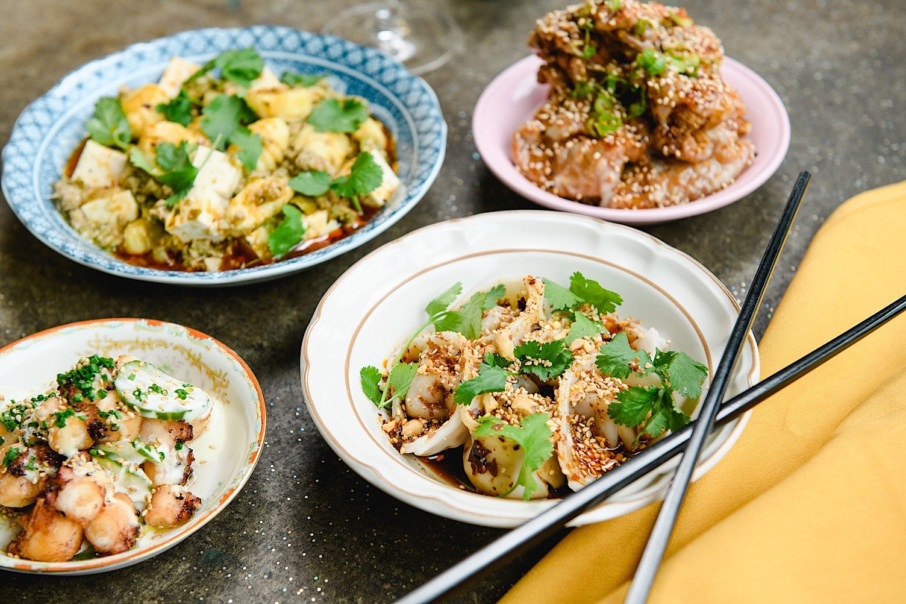
Both Shuai and Corrie remain optimistic, however. They’re hopeful that the more diners try their food, and the more they’re introduced to flavors from China and Japan, the more they might understand more of the culture, too.
“Back in the food truck days, the customers would come up and ask, ‘So what’s the difference between Japanese and Chinese food, anyway?’” says Corrie.
“It just sort of highlights that so little is known about other cultures, and people think they’re very familiar with Chinese food, just from one sort of subtext of dining, from the takeout Chinese place on the corner. They’re loving this food, but that just scratches the surface of, you know, an entire culture.”
Wang is quick to point out he and Corrie are not alone in this work. That other restaurant owners and chefs, like Xiao Bao Biscuit’s Josh Walker and Duolan Walker-Li, are paving the way, too, and introducing more of their cultures and histories to diners through their food.
But this — along with a desire to build a company that “builds lifelong careers” for their employees — is what keeps them both going, even if the hours are grueling and the work of running a restaurant demands so much of them. In fact, they’re planning to expand, though they’re keeping details quiet for now.
“When Corrie and I first moved here, I honestly didn’t want to stay here,” says Shuai. “I was getting weird looks in places because there’s not a huge Asian population here, even just four years ago. But if we’d moved back up north, that doesn’t help anyone. It doesn’t teach anyone anything. If I didn’t stay here and just have the patience to teach people, to say, ‘Hey, there’s so much more to Chinese food,’ or take that next step, then who would?”
Jackrabbit Filly is open for both indoor and outdoor dining from Wednesdays to Sundays. Order takeout here.
Deanna Ting is a Resy staff writer. Follow her on Instagram and Twitter. Follow Resy, too.


